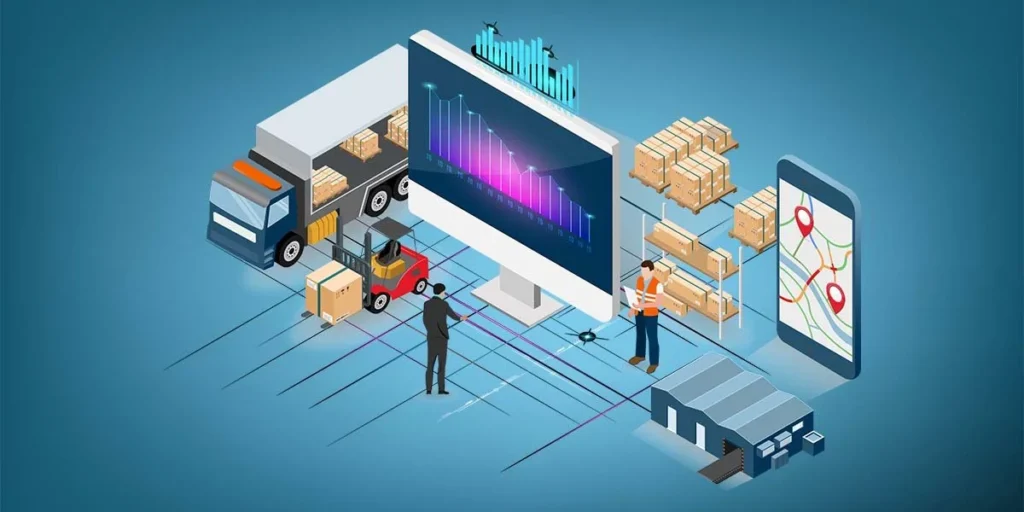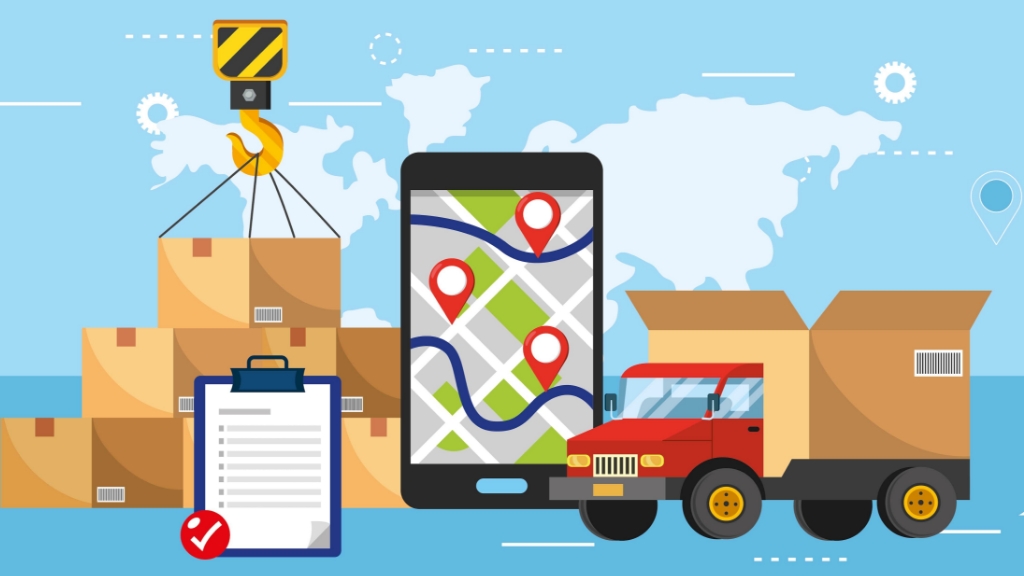Logistics software has revolutionized the way businesses manage their supply chain operations, offering enhanced visibility, efficiency, and optimization. From inventory management to transportation planning and order tracking, logistics software has become an indispensable tool for businesses across industries. In this article, we will explore the power of logistics software in the modern supply chain, its key functionalities, and the benefits it brings to businesses in terms of cost savings, improved customer satisfaction, and streamlined operations.
Key Functionalities of Logistics Software
- Transportation Management: Logistics software provides robust transportation management capabilities, allowing businesses to plan, optimize, and track the movement of goods across various modes of transportation. It enables efficient route planning, load optimization, carrier selection, and real-time tracking, ensuring timely and cost-effective deliveries.
- Warehouse Management: Logistics software offers comprehensive warehouse management functionalities, optimizing inventory control, order fulfillment, and storage operations. It enables businesses to streamline picking, packing, and shipping processes, reducing errors and improving overall warehouse efficiency.
- Inventory Management: Effective inventory management is crucial for businesses to maintain optimal stock levels while minimizing costs. Logistics software provides real-time visibility into inventory levels, tracks stock movements, automates reorder points, and facilitates demand forecasting, helping businesses optimize their inventory levels and reduce carrying costs.
- Order Management: Logistics software streamlines the order management process, from order creation to fulfillment. It enables businesses to automate order processing, track order status, manage returns, and ensure accurate order fulfillment, leading to improved customer satisfaction and faster order cycle times.
- Supply Chain Analytics: Logistics software offers powerful analytics capabilities, providing businesses with valuable insights into their supply chain operations. Through data visualization, reporting, and predictive analytics, businesses can identify bottlenecks, optimize processes, and make data-driven decisions to improve overall supply chain performance.
Benefits of Logistics Software

Source: dispatchtrack.com
- Improved Efficiency and Cost Savings: Logistics software automates manual tasks, eliminates paperwork, and streamlines processes, resulting in improved operational efficiency. By optimizing transportation routes, minimizing inventory carrying costs, and reducing order processing time, businesses can achieve significant cost savings.
- Enhanced Visibility and Tracking: Logistics software provides real-time visibility into the supply chain, enabling businesses to track shipments, monitor inventory levels, and gain insights into order status. This visibility allows for proactive decision-making, improved customer communication, and timely response to any disruptions or delays.
- Optimized Customer Satisfaction: Logistics software enables businesses to deliver orders on time, accurately, and with enhanced transparency. Improved order accuracy, faster order processing, and efficient delivery management contribute to a better customer experience, leading to increased customer satisfaction and loyalty.
- Streamlined Collaboration: Logistics software facilitates collaboration and communication among various stakeholders in the supply chain. It enables seamless information sharing between suppliers, manufacturers, carriers, and customers, promoting effective coordination and reducing errors or miscommunications.
- Scalability and Flexibility: Logistics software offers scalability and flexibility to adapt to changing business needs and industry dynamics. As businesses grow and expand, logistics software can accommodate increased transaction volumes, additional warehouse locations, and evolving supply chain requirements.
Evolution of Logistics Software: Embracing Technological Advancements

Source: avioconsulting.com
Over the years, logistics software has evolved to meet the growing demands of businesses and keep pace with technological advancements. Here are some notable developments shaping the future of logistics software:
- Artificial Intelligence and Machine Learning: Integration of artificial intelligence (AI) and machine learning (ML) technologies is transforming logistics software. AI-powered algorithms analyze vast amounts of data, enabling predictive analytics, intelligent decision-making, and automation of routine tasks. ML algorithms learn from historical data to optimize routes, predict demand, and enhance overall supply chain efficiency.
- Internet of Things (IoT) Integration: The integration of IoT devices and sensors into logistics software enables real-time monitoring of assets, vehicles, and inventory. IoT data provides valuable insights into conditions such as temperature, humidity, and location, facilitating proactive management, predictive maintenance, and enhanced supply chain visibility.
- Blockchain Technology: Blockchain technology holds the potential to revolutionize logistics by providing transparent and secure transactional records. Through blockchain-powered smart contracts, logistics software can automate payment processes, enhance trust between stakeholders, and ensure the integrity of data across the supply chain.
- Cloud-Based Solutions: Cloud computing has transformed logistics software, offering scalability, accessibility, and collaboration. Cloud-based logistics software enables real-time data sharing, seamless integration with other business systems, and remote access, allowing stakeholders to collaborate and make informed decisions from anywhere.
- Robotic Process Automation (RPA): RPA automates repetitive tasks within logistics software, freeing up human resources for more strategic activities. Software bots can handle data entry, document processing, and report generation, improving accuracy, efficiency, and reducing the potential for human errors.
Challenges and Considerations in Implementing Logistics Software

Source: apptunix.com
While logistics software offers immense benefits, its successful implementation requires careful consideration of several factors:
- Integration Complexity: Integrating logistics software with existing systems and processes can be complex. Businesses need to assess their IT infrastructure, data compatibility, and the readiness of stakeholders to ensure a smooth transition and optimal performance.
- Data Quality and Security: Logistics software relies on accurate and reliable data. Businesses must invest in data quality measures, such as data cleansing and validation, to ensure the integrity of information. Additionally, robust security measures should be implemented to safeguard sensitive supply chain data.
- User Adoption and Training: Proper user adoption and training are essential for maximizing the benefits of logistics software. Businesses should invest in comprehensive training programs to ensure that employees understand the software’s functionalities, workflows, and best practices.
- Vendor Selection: Choosing the right logistics software vendor is critical. Businesses should evaluate vendors based on their track record, industry expertise, scalability, support services, and the ability to provide ongoing updates and enhancements.
Final Thoughts
Logistics software has become a game-changer in the modern supply chain landscape. By harnessing the power of transportation management, warehouse management, inventory management, order management, and supply chain analytics, businesses can achieve significant operational efficiencies, cost savings, and improved customer satisfaction.
As logistics software continues to evolve with advancements in AI, ML, IoT, and blockchain, businesses must stay agile and embrace the latest technologies. By leveraging these technological advancements and addressing implementation challenges, businesses can unlock the full potential of logistics software, driving competitive advantage and transforming their supply chain operations for future success.



